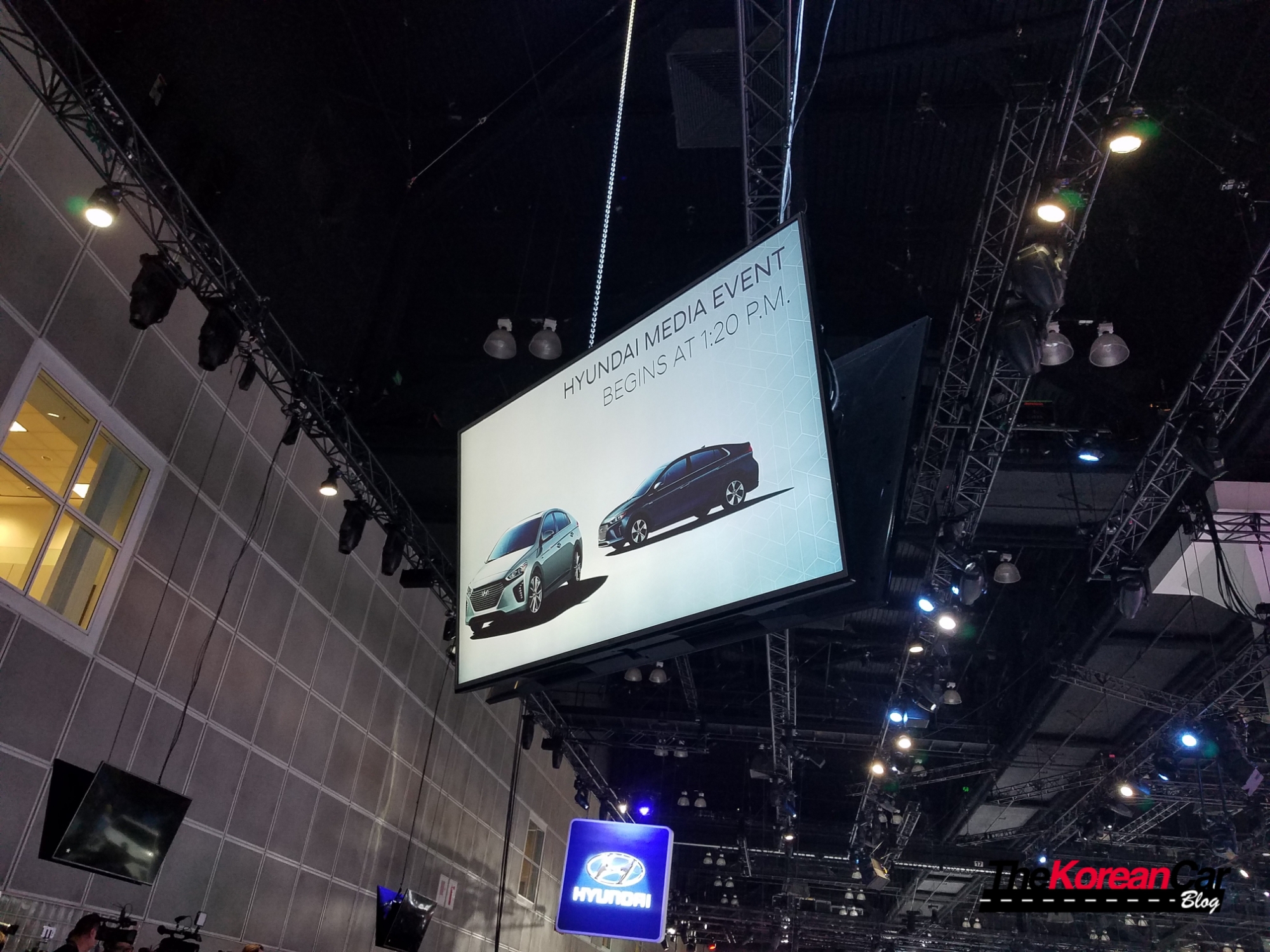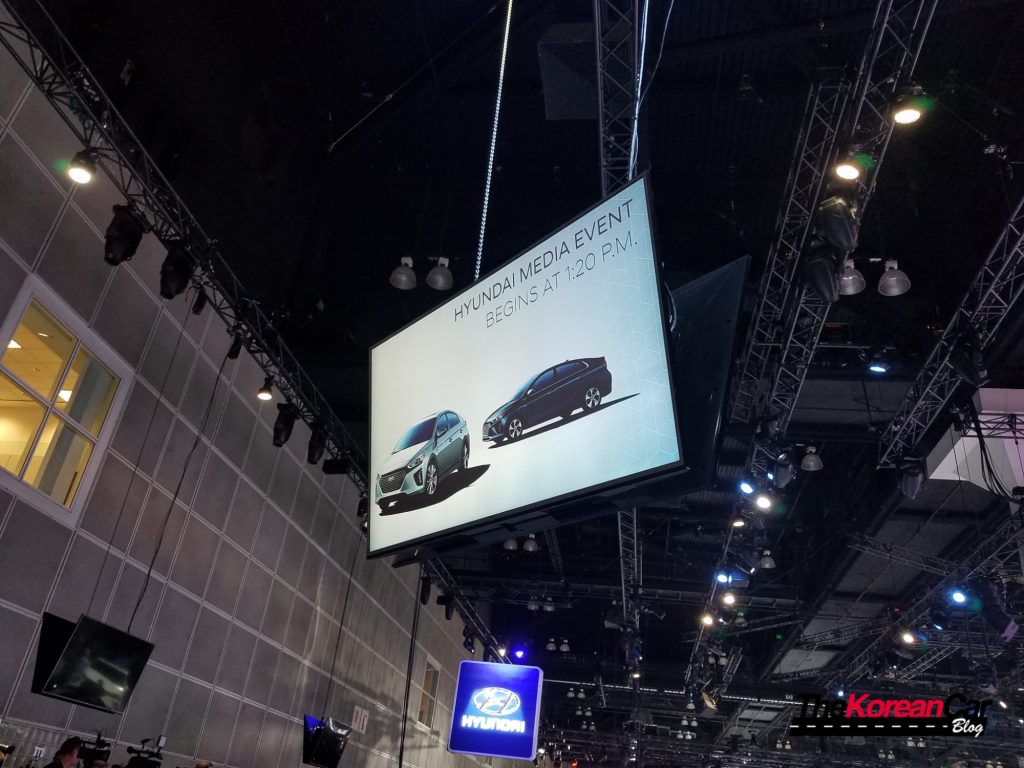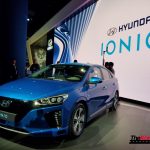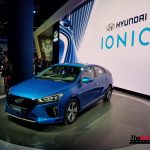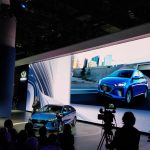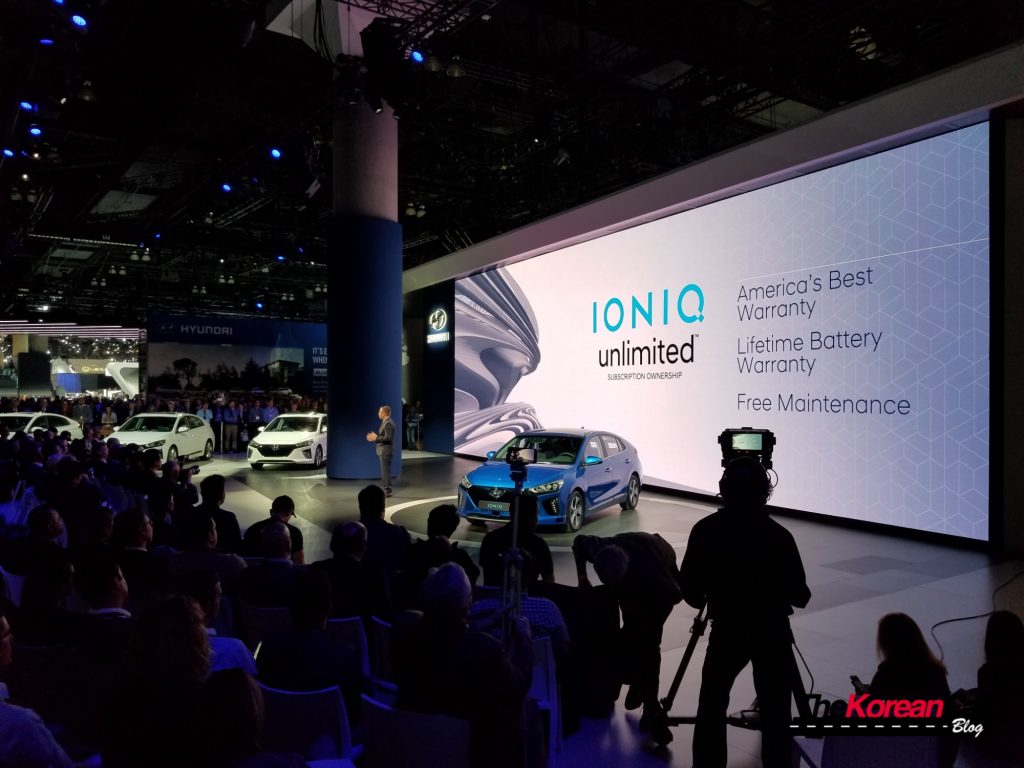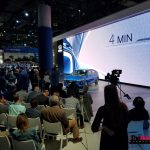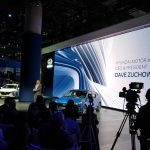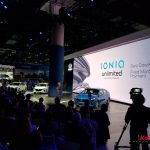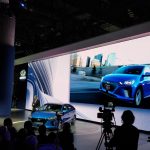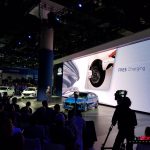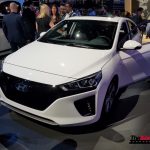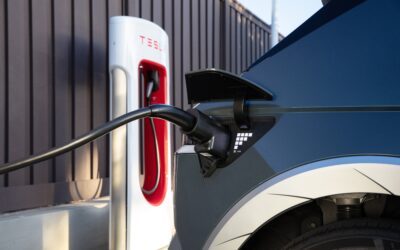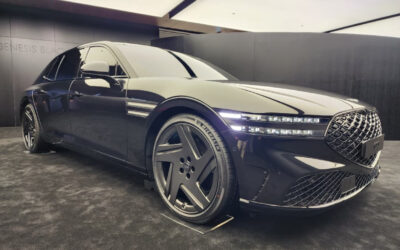The Ioniq was the star of Hyundai’s 2016 Los Angeles International Auto Show press conference.
[ads id=”0″ style=”float:left;padding:6px;”]Alongside the hybrid, plug-in hybrid, and all-electric Ioniq variants, Hyundai showed their autonomous electric Ioniq concept. While we won’t be seeing this version in showrooms just yet, Hyundai claims that the fully autonomous concept car has been testing in Seoul for the last several months. It will also be seen again at CES in Las Vegas early next year and will pilot itself down the Vegas strip. Hyundai has also been testing autonomous Hydrogen fuel cell Tucson vehicles in Korea.
The car’s hardware includes three lidar sensors in the front bumper that integrate with blind-spot radar, Smart Cruise Control, lane-keep assist sensors, GPS, and three more cameras facing forwards. Advanced software links up to all this hardware to help the autonomous Ioniq navigate roads without human assistance.
While a Hyundai autonomous vehicle you can actually buy is still years away, Hyundai confirmed that the Ioniq Hybrid and Ioniq Electric will be available in the early days of 2017. The Hybrid is expected to get 58mpg on the US cycle, beating out the Prius Prime and other dedicated hybrids. The Electric claims 136mpg equivalent – higher than the BMW i3 and other electric cars. The plug-in Hybrid will be available later in 2017.
[ads id=”0″ style=”float:left;padding:6px;”]Hyundai also announced that they are launching a pilot Ioniq Unlimited program in California to get more drivers behind the wheels of an Ioniq Hybrid or Electric vehicle. This program allows customers to sign up online to pay one fixed monthly fee that covers the payment of the car, all maintenance, and free unlimited electric charging, all for an unlimited number of miles.
While millennials were brought up several times as a target demographic for the Ioniq Unlimited program, it also reflects the way that mobile devices are sold to customers throughout the United States, which will probably provide more appeal for the program in other demographics, too. Based on the results of this pilot program, Hyundai will determine whether to expand it nationally and/or to expand it to other vehicles in the Hyundai lineup.
The Ioniq Unlimited program may also help to boost sales for the Ioniq. Many dealers struggle to sell and support electric vehicles because the dealership model and electric car shoppers are not always compatible. Because the Ioniq Unlimited program takes advantage of an online ordering system and the customer simply has to pick up the car at the dealer, the program should allow a better electric car buying experience for both the customer and the dealer.
One thing is certain: Hyundai is gambling a lot on the success of the Ioniq. By using it to spearhead their dedicated hybrid, fully electrified car, autonomous vehicle, and monthly subscription programs, the new car will have to be a lot of different things to a lot of different people. We’ll see what happens when it launches in 2017.

